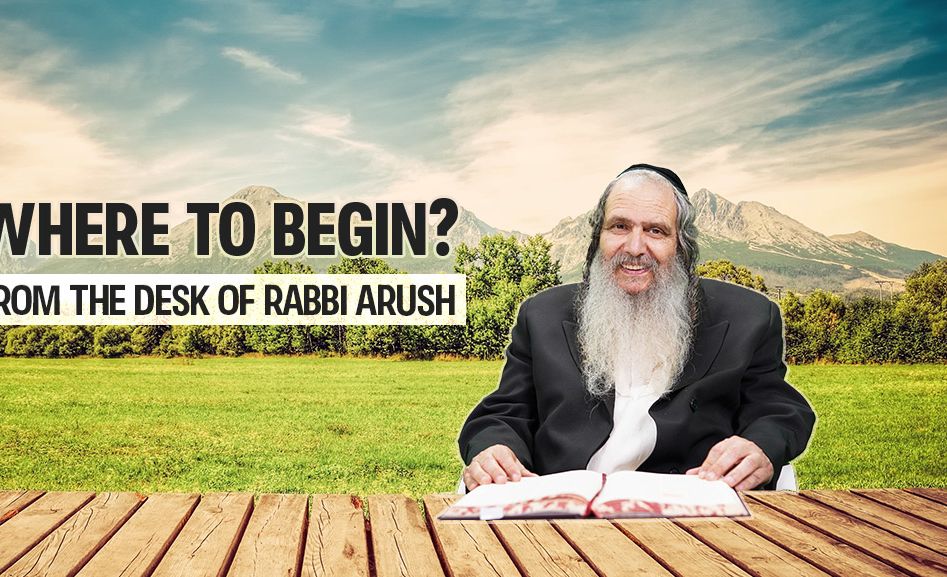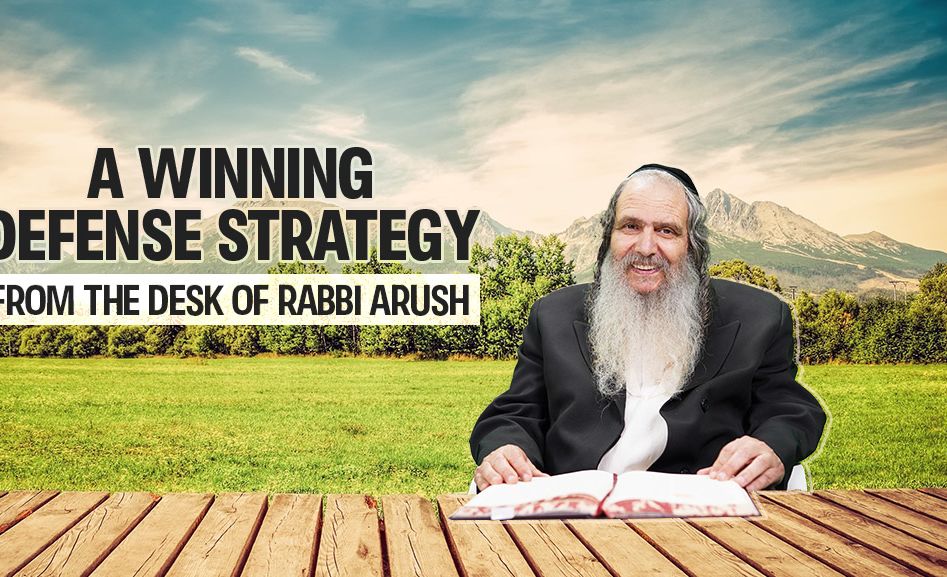
The Gift of Gratitude
Everything G-d is for our best. Sure, that’s easy to say. But what about the times when you feel like your world is crashing around you?

One afternoon as I was nursing my delicious baby boy to sleep, I caught myself staring mindlessly at the tree directly outside his bedroom window. I don’t know how long I was in outer space, but a thought entered my mind that quickly brought me back. “Do you know,” I wondered to myself, “how many leaves are growing on this tree?” Then came a roller coaster of thoughts. How many leaves are engaging in photosynthesis at this very moment, converting carbon dioxide into air and energy using the light of the sun? How about the amazing vascular transport system that brings water and other nutrients from the soil all the way to the tips of the branches? All this is being done simultaneously in each tree, each plant, each blade of grass all over the entire world without stopping.
Could you imagine if the trees were transparent and we could see all of this happening? We would be in a constant state of awe from the sheer complexity of it! This is truly an amazing miracle that we don’t even  realize is happening every day! This led me to the clear understanding that the Creator is performing a countless number of miracles for us each and every second. Yes, you may already know this, as we all intrinsically do. What’s my point? The only way to really internalize and benefit from this knowledge is through expressing gratitude to the Creator. By expressing your gratitude, you are actively creating the greatest vessel to draw blessings into your life.
realize is happening every day! This led me to the clear understanding that the Creator is performing a countless number of miracles for us each and every second. Yes, you may already know this, as we all intrinsically do. What’s my point? The only way to really internalize and benefit from this knowledge is through expressing gratitude to the Creator. By expressing your gratitude, you are actively creating the greatest vessel to draw blessings into your life.
To really understand what it means to have gratitude, we must first realize two fundamental principles. First, we must consider our relationship with G-d as one of a child and parent. Second, we must understand that everything G-d does is for our ultimate best. Let’s explore the first principle in greater detail. For those of us that either have children or parents (which is all of us), let’s think about what it’s like from the point of view of a mother who really loves her child. Does the mother not spend much of her time thinking about how much she loves her child and how much she wants to give him everything she can? Where do you think these thoughts come from? Why are they such a part of our maternal nature? Our neshamot (divine sparks within us) are a part of the Creator. As such, they have the same characteristics as G-d Himself. We all want to share more, care more, love more, and do whatever we can to bring more Light to the world. Our Loving Father in Heaven feels infinitely greater love for us, more than we can ever imagine. This is why He created us, so we can know in our hearts how much He loves us. We are His children. How many of us moms ask our children constantly, “Do you know how much I love you? If you only knew you would never be sad!” Every second we are alive our Heavenly Father is whispering this lovingly in our ears. Once we work on internalizing this principle, we can move on to the second point.
Everything G-d is for our best. Sure, that’s easy to say, and maybe even easy to believe when things are going well. But what about the times when you feel like your world is crashing around you? How about when everything “bad” is happening all at once? What is your heart feeling then? Are you thanking the Creator for these tough moments or are you asking what you have done to deserve this? The Shulchan Aruch, which is the compilation of Jewish Law, states that one must thank the Creator for the seemingly bad in the same way as one thanks Him for the good. Why? This is based on the reasoning that the Creator is All Good; therefore, all that He does is good. Anything not good is exclusive of G-d, therefore not a part of Him. If one believes a situation is not good, then one must also believe it didn’t come from G-d, which means there is another source in control besides G-d, which according to Jewish law is heresy. Obviously we cannot see the big picture with our five senses, especially when we are going through a difficult challenge. Think back to a time when you were going through something and you didn’t see the hidden blessing in it until afterwards. Once you realized it was for the best, weren’t you grateful for that difficult time? I understood this concept very clearly when my little boy had a cold. I was suctioning all of the mucus out of his nose, which was not a pleasant thing for him. He was crying hysterically and extremely uncomfortable. But I was acting out of love and concern for him. Did I not suction his nose with the most love possible, even while firmly holding his head still? Of course I did. I probably saved him from several more days of congestion, not to mention a possible ear infection, which could mean ten days of antibiotics. So for a few minutes of distress, he avoided a longer illness.
Why does the Creator want us to thank Him for our troubles? First, He can help us in ways that defy logic and nature. Then we can see with our own eyes how G-d is an active part of our lives. Once we see the miracles that come out of the difficult situations, we can then begin to see the hidden miracles G-d performs for us every day. As a result, we awaken our inherent desire to draw closer to G-d. Second, our troubles serve as a soul correction for a transgression that we have done in the past, even in a past lifetime. This correction cleanses and purifies our souls in order to restore them to their original brilliance. Third, our troubles serve as a stimulus for us to turn to the Creator for help and guidance. This helps us to rid ourselves of our Yetzer Hara, or Evil Inclination, which wants us to believe that we, not G-d, are in control and the source of everything good in our lives. Once we return with humility to Him and ask for His help, we can receive tremendous divine mercy and assistance. The Holy Zohar, which is the main source for esoteric wisdom in Judaism written by Rabbi Shimon bar Yochai, states, “Open for me an opening no wider than the eye of a needle and I will open for you the supernal gates.” In essence, all the Creator wants from us is to just take the first step and He will take care of the rest. That first step is gratitude.
Nothing mitigates stern judgments like gratitude. Conversely, nothing invokes stern judgments like ingratitude. Going back to our parent/child allusion, imagine that you give and give to your child whatever he wants, and all he does is complain about what he does not have. Would you want to keep giving to such a child? No, because you do not want him to grow up without appreciating anything. Now, if you had a child who profusely thanked you for every little thing, would you not try your hardest to make sure that this child had everything he needed and more? What about if you ground your child for something he did and he still thanks you because he understands this will make him a more responsible adult? Would you not consider shortening his sentence? This is how we must come to look at the gift of gratitude. We can use it to sweeten any heavenly judgments we may have against us, G-d forbid. It is one of our greatest weapons to ensure we have a life of fulfillment and joy, not hardships.
What is the proper way to use this amazing tool? Rabbi Nachman of Breslev, the great grandson of the Baal Shem Tov, combined the secrets of Kabbalah, or the mystical aspect of Judaism, with in-depth Torah knowledge. He championed developing a personal and intimate connection with the Creator through hitbodedut, or personal prayer. Rabbi Nachman fundamentally states that through this type of relationship with G-d one can find his own personal salvation. How do we accomplish this? By taking time out of our day, at least a few minutes, and thanking the Creator for everything we have in our lives, even and especially the challenges. Here are some easy steps to help you get started:
- Set aside a few minutes when you will be undisturbed, preferably among the beauty of nature.
- Ask the Creator to help you find the right words to express yourself as best as you can.
- Thank Him for the things you appreciate the most in your life. If you have a hard time starting, look within yourself. Think about the miracle of your body, what is going on each and every second. Contemplate the millions of brain impulses being fired into your nerves each second. Think about how many times your heart beats every moment, never stopping for a break. Think about your lungs that breathe in air automatically without you having to tell them. Be amazed about how you can walk, talk, eat, get dressed, put on makeup, drive, and think about a hundred other things at the same time! Go through each organ and body system and you will be practically in tears with the realization of the amazing gift of life. As you become more accustomed to thanking G-d for your body, you will be amazed at what you have taken for granted. For example, when was the last time you thanked the Creator for your teeth? Can you chew? Wonderful! Can you swallow your food without choking? Fantastic! Have you tried to eat without doing either of these two things? Impossible!
- Thank Him for your challenges. Become aware of the fact that the challenges are in your life to help you with your soul correction and to make you a stronger woman. Remember that the challenges are the motivational tools for you to come closer to G-d. Thank Him for the opportunity He is giving you to return to him. Ask for guidance and increased spiritual awareness that will help you to understand why you are going through your difficulty. Try to realize that there are worse things that can happen and look for the mercy in your situation.
- Ask G-d for help. This part is a bit tricky. This is not an excuse to complain; rather, it is a chance for you to recognize that you are only human and maybe not capable of extracting yourself from a difficult situation. You could try something like this, “My loving Father in Heaven, thank You for this challenge that You have presented me with. I am trying to see the blessings in it, but I cannot do it yet. I need Your help and Your guidance to get me through this. I cannot do it alone. I need to feel Your presence and Your love in this situation. Please help me move forward in my life and increase my wisdom and awareness as to why this is happening to me. Thank you, G-d, for this opportunity You have given me to call out to You and to come closer to You.”
Once you realize that the challenge is a stimulus for you to turn to Him, you will be pleasantly surprised at how quickly it can be resolved, sometimes not even through any of your own efforts. If you have a hard time starting, don’t be discouraged. The sages say the farthest distance in the world is between the brain and the heart. Knowledge takes time to internalize into wisdom. I know from experience, however, that if you do this every day, you will be amazed at how much positive change you will see within yourself and in your surroundings. If you are interested in learning more about gratitude and personal prayer, two of my favorite books are The Garden of Emuna and Women’s Wisdom: The Garden of Peace for Women by Rabbi Shalom Arush. If you really want to improve your life on all levels, gratitude to the Creator is a great way to start.












Tell us what you think!
Thank you for your comment!
It will be published after approval by the Editor.